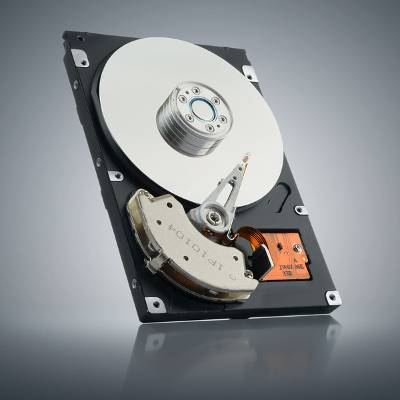Heart of Texas Network Consultants Blog
What's a Hard Drive Crash and How Can I Prevent It?
 You've heard about how bad a computer crash can be. You may have even experienced a crash yourself, but are you familiar with the technical reason behind a crash? A crash happens when the tiny pieces of a hard disk drive stop working by crashing into each other at very high speeds. When this happens, the data on your computer is lost.
You've heard about how bad a computer crash can be. You may have even experienced a crash yourself, but are you familiar with the technical reason behind a crash? A crash happens when the tiny pieces of a hard disk drive stop working by crashing into each other at very high speeds. When this happens, the data on your computer is lost.
To give you an idea of the complexity of a hard disk drive, here's a list of what makes up a typical disk drive.
- Disk Case: The rectangular case that houses all of the drive components. It's held together by small screws and it's designed to be so air tight as to keep out even the smallest piece of dust.
- Disk Platter: A donut-shaped disk that kind of looks like the shiny side of a compact disc. This is where the precious data is stored. The disk platter has a smooth and magnetic surface, and different disk drives will have a different amount of disk platters based on the capacity of the hard drive. The platters spin at thousands of RPMs, which is what creates that humming sound coming from your PC.
- Spindle: The component that sits in the middle of the platter causing it to spin. The spindle is responsible for holding the platters together.
- Read/Write Arm: Think back to a record player with an arm that extends over the spinning vinyl. The read/write arm of a hard drive functions the same way, with the disk platter acting as the LP.
- Actuator: This is what the read/write arm is attached to. The actuator tells the read/write arm where to move so that it can read the data.
To help computer novices understand the complexity of a disk drive's inner workings, we turn to Tim Hunkin's The Secret Life of Machines, in which he equates a hard disk drive to a flying airplane:
The speed and accuracy of a hard disk magnetic head is incredible--the equivalent of a jumbo jet flying 2-3 meters over the ground while counting every blade of grass it flies over. The term 'computer crash' originally referred to the magnetic head literally crashing into the disk.
In this example, the grass in the field is the data and the airplane is the read/write arm. Therefore, think of all the grandeur and the devastation of a jumbo jet crashing into a field of grass. The plane would be smashed into bits and the grass in the field would be destroyed in a fireball. When a hard disk drive crashes, it's kind of like a tiny plane wreck happens inside of your computer--with your data being the casualty.
A disk hard drive is one of the most dreaded computer errors because it not only erases your files, but it also destroys many of your drive's hardware components. Once a hard drive crashes, the only way to (maybe) retrieve some of the data is to remove the busted drive and send it to a clean room for a time consuming and expensive data retrieval procedure. A service like this can cost thousands of dollars and only the sectors that haven't been destroyed in the crash can be retrieved. With a data retrieval service like clean rooms, after shelling out lots of money and waiting for a long period of time, you might only get back some of your data.
The best way to protect your data in the event of a hard disk crash is to back it up. Because disk drives are so intricate and its parts are so fast-moving, they won't last forever and the drive will eventually fail--sometimes ending by way of a spectacular crash. Backing up your data to an alternative drive will ensure that, if your hard drive crashes, you will be able to retrieve your backed up files from the other drive.
There are several different ways to backup your data. We've discovered that the best data backup solution is coupled with a data recovery option. This is how Heart of Texas Network Consultants' Backup and Disaster Recovery (BDR) solution works. Our BDR solution will automatically backup all of the data on your server, and BDR can make your data quickly available via a terminal in the event that something happens to your hard drive, like a hard disk drive crash.
Protecting your company's data with BDR is as easy as calling Heart of Texas Network Consultants at (254) 848-7100. Give us a call and we'll assess your data needs to equip your business with the a BDR solution customized for them. Call us today to prevent a hard drive crash from crashing your company's bottom line!



Comments